
Alex K. Shalek, PhD
Pfizer-Laubach Career Development Associate Professor
Institute for Medical Engineering & Science
Department of Chemistry and Koch Institute
Massachusetts Institute of Technology
Abstract: While several methods exist for sampling tissues in clinical contexts, without high-fidelity tools for comprehensively profiling them, we are both limited in our capacity to understand how constituent cells and their interactions impact prognosis, and to select and develop precision therapeutics. Recent years have witnessed transformative and intersecting advances in nanofabrication and molecular biology that now enable deep profiling of low-input samples. Collectively, these afford new and exciting opportunities to study cellular heterogeneity, starting from the level of the single cell, and may unlock the diagnostic, prognostic, and discovery potential of clinical isolates. Illustratively, I will introduce how we can leverage single-cell genomic approaches – and, in particular, single-cell RNA-Seq – to explore the extensive functional diversity between cells, uncovering, from the “bottom-up,” distinct cell states and their molecular drivers. Moreover, I will discuss high-throughput experimental strategies and demonstrate, in the context of Acute Lymphoblastic Leukemia, how they can be leveraged to achieve the statistical power necessary to reconstruct intracellular circuits, enumerate and redefine cell states and types, and transform our understanding of cellular decision-making in health and disease on a genomic scale.
Bio: Alex K. Shalek is currently the Pfizer-Laubach Career Development Associate Professor at MIT, as well as a Core Member of the Institute for Medical Engineering and Science (IMES), an Associate Professor of Chemistry, and an Extramural Member of The Koch Institute for Integrative Cancer Research. He is also an Institute Member of the Broad Institute, an Associate Member of the Ragon Institute, an Assistant in Immunology at MGH, and an Instructor in Health Sciences and Technology at HMS. His research is directed towards the development and application of new technologies that facilitate understanding of how cells collectively perform systems-level functions in healthy and diseased states. Dr. Shalek received his bachelor’s degree summa cum laude from Columbia University and his Ph.D. from Harvard University in chemical physics under the guidance of Hongkun Park, and performed postdoctoral training under Hongkun Park and Aviv Regev (Broad/MIT). To date, his interdisciplinary research has focused on realizing and utilizing nanoscale manipulation and measurement technologies to examine how small components (molecules, cells) drive systems of vast complexity (cellular responses, population behaviors).
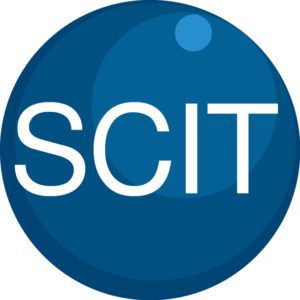
Muna Aryal Rizal, PhD
Mentor: Jeremy Dahl, PhD and Raag Airan, MD, PhD
Noninvasive Focused Ultrasound Accelerates Glymphatic Transport to Bypass the Blood-Brain Barrier
ABSTRACT
Recent advancement in neuroscience revealed that the Central Nervous System (CNS) comprise glial-cell driven lymphatic system and coined the term called “Glymphatic pathway” by Neuroscientist, Maiden Nedergaard. Furthermore, it has been proven in rodent and non-human primate studies that the glymphatic exchange efficacy can decay in healthy aging, alzheimer’s disease models, traumatic brain injury, cerebral hemorrhage, and stroke. Studies in rodents have also shown that the glymphatic function can accelerate by doing easily-implemented, interventions like physical exercise, changes in body posture during sleep, intake of omega-3 polyunsaturated fatty acids, and low dose alcohol (0.5 g/kg). Here, we proposed for the first time to accelerate the glymphatic function by manipulating the whole-brain ultrasonically using focused ultrasound, an emerging clinical technology that can noninvasively reach virtually throughout the brain. During this SCIT seminar, I will introduce the new ultrasonic approach to accelerates glymphatic transport and will share some preliminary findings.
Eduardo Somoza, MD
Mentor: Sandy Napel, PhD
Prediction of Clinical Outcomes in Diffuse Large B-Cell Lymphoma (DLBCL) Utilizing Radiomic Features Derived from Pretreatment Positron Emission Tomography (PET) Scan
ABSTRACT
Diffuse Large B-Cell lymphoma (DLBCL) is the most common type of lymphoma, accounting for a third of cases worldwide. Despite advancements in treatment, the five-year percent survival for this patient population is around sixty percent. This indicates a clinical need for being able to predict outcomes before the initiation of standard treatment. The approach we will be employing to address this need is the creation of a prognostic model from pretreatment clinical data of DLBCL patients seen at Stanford University Medical Center. In particular, there will be a focus on the derivation of radiomic features from pretreatment positron emission tomography (PET) scans as this has not been thoroughly investigated in similar published research efforts. We will layout the framework for our approach, with an emphasis on the aspects of our design that will allow for the translation of our efforts to multiple clinical settings. More importantly, we will discuss the importance and challenges of assembling a quality clinical database for this type of research. Ultimately, we hope our efforts will lead to the development of a prognostic model that can be utilized to guide treatment in DLBCL patients with refractory disease and/or high risk of relapse after completion of standard treatment.
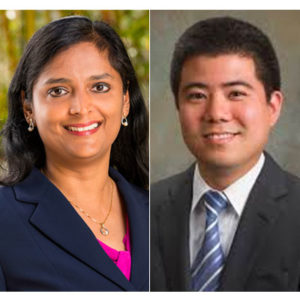
Mini-Grand Rounds: Emerging treatment strategies for COVID-19
Aruna Subramanian, MD
Clinical Professor, Medicine
Stanford University
David Ha, PharmD
Infectious Disease Resident
Stanford University
7:00am – 7:30am, Zoom
The Stanford Radiology Mini-Grand Round live session events are by invitation only. Invites with link to Zoom video will be sent via email to Department faculty and staff only. Recordings will be made available to the public shortly after the event.
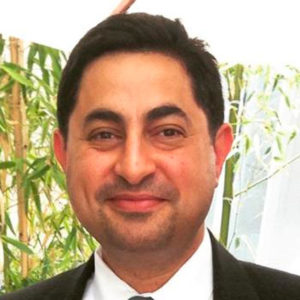
Mini-Grand Rounds: Effective faculty-trainee workflow and education during the COVID-19 pandemic
Payam Massaband, MD
Clinical Associate Professor, Radiology
Stanford University
7:00am – 7:30am, Zoom
The Stanford Radiology Mini-Grand Round live session events are by invitation only. Invites with link to Zoom video will be sent via email to Department faculty and staff only. Recordings will be made available to the public shortly after the event.
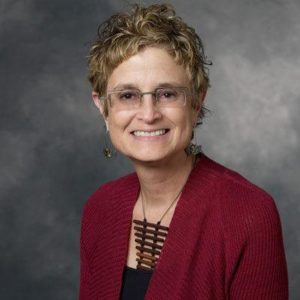
Mini-Grand Rounds: CoVID19: Lessons learned from the global response
Michele Barry, MD, FACP
Drs. Ben & A. Jess Shenson Professor
Senior Associate Dean, Global Health
Director, Center for Innovation in Global Health
Professor of Medicine & Senior Fellow at the Woods Institute and at the Freeman Spogli Institute
7:00am – 7:30am, Zoom
The Stanford Radiology Mini-Grand Round live session events are by invitation only. Invites with link to Zoom video will be sent via email to Department faculty and staff only. Recordings will be made available to the public shortly after the event.

Mini-Grand Rounds: How to stay productive during the COVID-19 pandemic
Garry Gold, MD
Vice Chair, Research and Organization
Professor, Radiology
Stanford University
7:00am – 7:30am, Zoom
The Stanford Radiology Mini-Grand Round live session events are by invitation only. Invites with link to Zoom video will be sent via email to Department faculty and staff only. Recordings will be made available to the public shortly after the event.

Mini-Grand Rounds: Update on COVID-19
Shanthi Kappagoda, MD, MS
Clinical Associate Professor, Medicine – Infectious Diseases
Stanford University
7:00am – 7:30am, Zoom
The Stanford Radiology Mini-Grand Round live session events are by invitation only. Invites with link to Zoom video will be sent via email to Department faculty and staff only. Recordings will be made available to the public shortly after the event.
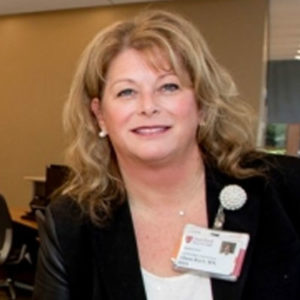
Mini-Grand Rounds: SHC preparedness and mitigation plans for the COVID-19 pandemic
Alison Kerr
Vice President, Neuroscience and Orthopedic Service Lines
CAO of Clinical Operations
Stanford Health Care
7:00am – 7:30am, Zoom
The Stanford Radiology Mini-Grand Round live session events are by invitation only. Invites with link to Zoom video will be sent via email to Department faculty and staff only. Recordings will be made available to the public shortly after the event.